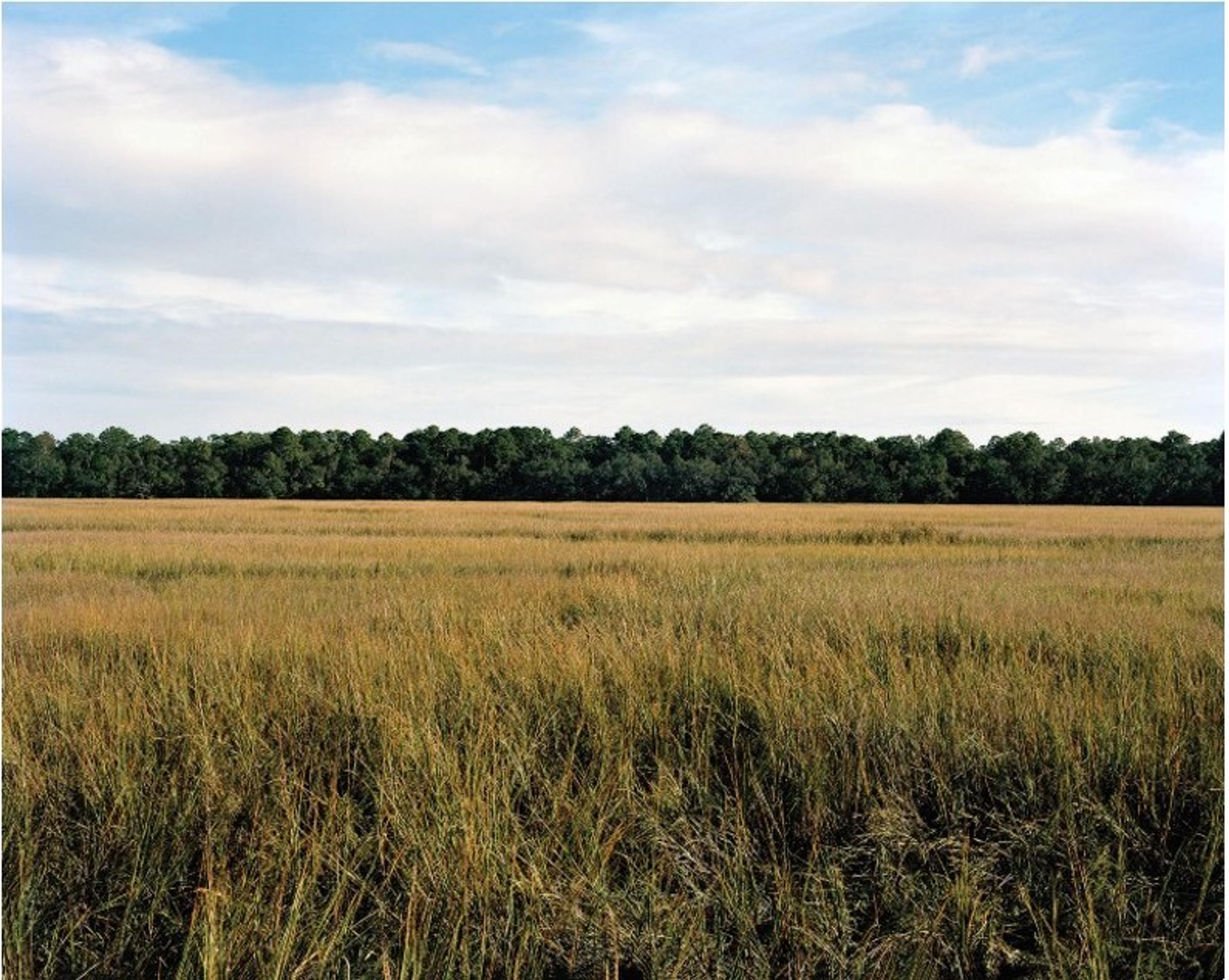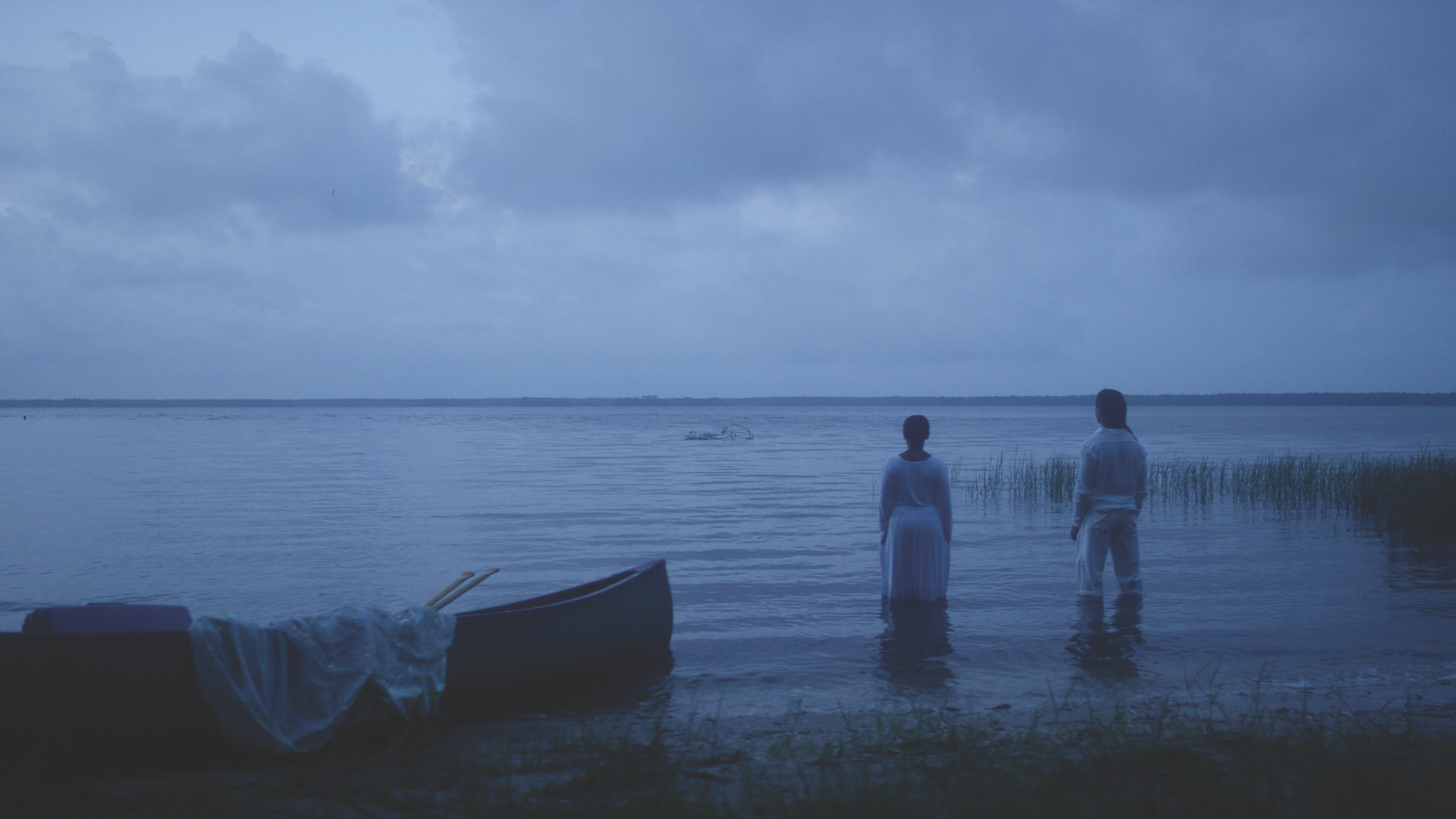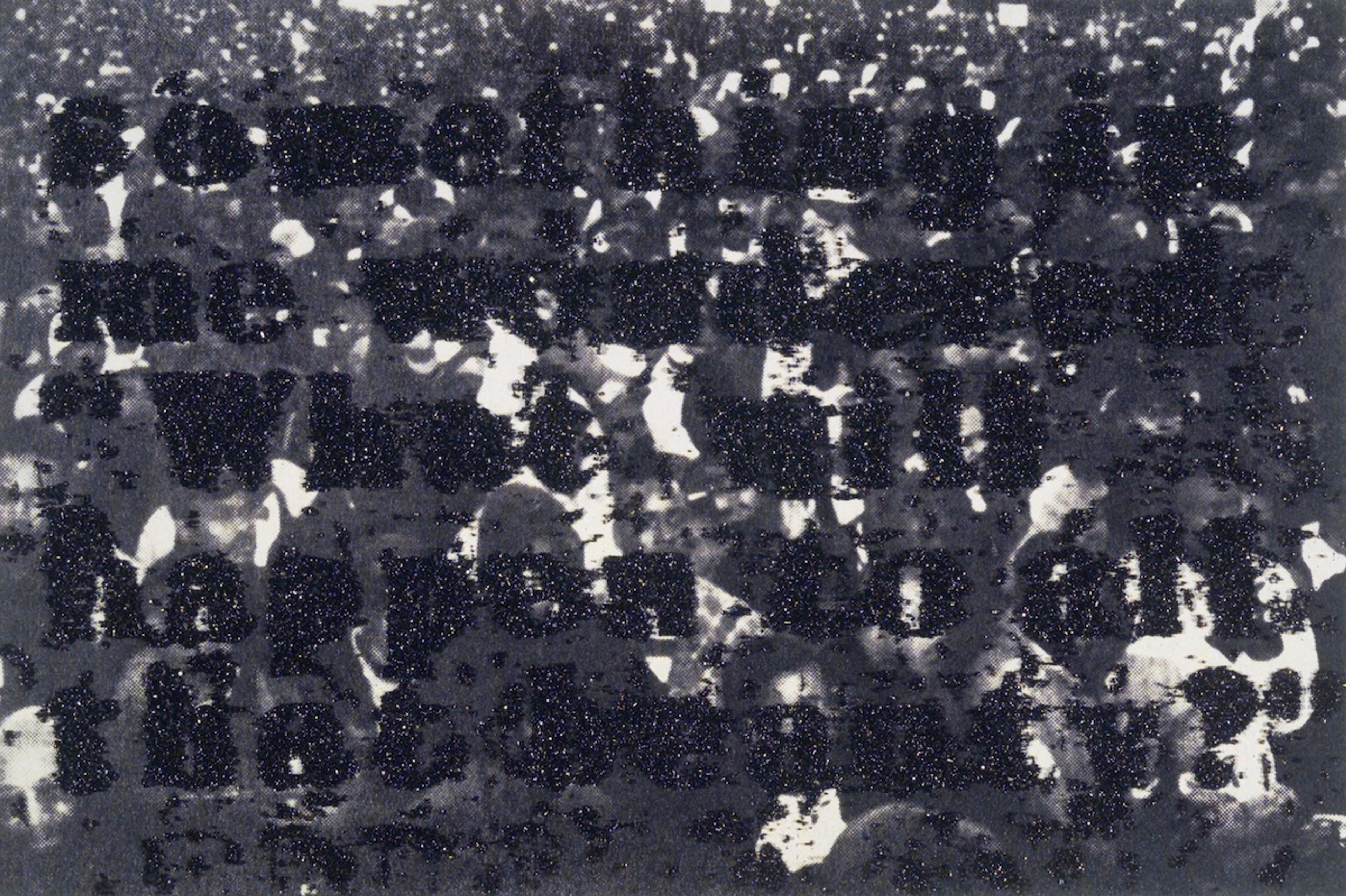Repair, Renew, Revise, Revise, Revise

Kiese Laymon on the Great Migration.
by Kiese Laymon
May 15, 2023
"Repair, Renew, Revise, Revise, Revise" by Kiese Laymon was written for the two-volume publication A Movement in Every Direction: Legacies of the Great Migration, published in 2022 by the Baltimore Museum of Art and the Mississippi Museum of Art in association with Yale University Press. For more information about the publication, visit artbma.org/greatmigration.
Visit the Brooklyn Museum for the exhibition A Movement in Every Direction: Legacies of the Great Migration, on view until June 25.
When my grandmama, Catherine Coleman, was a child, all of her family, along with more than six million other Black Americans from the Deep South, began an exodus that ended in Michigan, Illinois, Ohio, and Indiana. Rather than join the Great Migration, my grandmother chose to remain in Mississippi, working first in the field, then as a domestic, and later as a buttonhole slicer at a chicken plant. Even though she was legally forbidden from driving down certain roads, entering certain stores, using the bathroom of her choice, or voting freely, she insisted that “our” part of Mississippi belonged to folks of the Choctaw Nation and should be shared only with those who respected it.
“We worked too hard on this land to run to Milwaukee, Michigan and all that,” she told me. “Some of us believed, and still believe, this land will one day be free.”
A freed land was a repaired land in my grandmother’s estimation, and a repaired land gave all who worked it an equitable chance at economic and spiritual renewal. Yet neither renewal nor repair were possible unless one willed themself into a faithful revision of what we’d been told was normal, and really, possible. There’ve been thousands of books written about what that Black exodus did for “normal” and “possible” in the Midwest and on the West and East Coasts, but I’m thinking more about the complicated, fleshy stories of possession, repair, and renewal of those who stayed in Mississippi. Some of us in this nation are obsessed with progress. I think that obsession is why we call that migration “Great.” Some of us are obsessed with liberation. Some of us are understandably obsessed with reparation. All of that is vaporous without repair.
***
As a child growing up in the Deep South, I found nothing speculative or surreal in asserting that all who worked the land should have equal access to quality food and housing, equal access to transformative education, and equal protection under the law. I knew how we, the descendants of those who refused to march north, watched the gray tears of the hanging moss trees dripping over our land.
I knew how we felt the dark, bleeding-red brown of that creased bark.
I left Mississippi in 1995. I came back to my grandmother’s porch in 2015 to die. My grandmother greeted me on the site of that porch and said, “Nah, baby. Not this time.”
That same brown saturated our soil, birthing cotton, soybeans, collard greens, and purple hull peas. It coated our hollowed manufacturing plants. It peeked out of the open doorways of haunted plantations, mansions, projects, and trailerparks. It lined the cracks of the hastily built Confederate monuments commemorating bruising parts of yesterday. We saw, smelled, and felt the residue of that dark, bleeding-red brown in our region’s music and literature, in our classrooms and country stores, in our churches, and especially in how we repaired and renewed family. I wrote about the decaying, but not decayed, edges of that familial repair in a book called Heavy: An American Memoir.
When I was a child, Grandmama strategically placed box fans in the open windows of her pink shotgun house so that even when the temperatures reached more than one hundred humidified degrees, the interior felt like the coolest place on earth. She learned that from her Mama Rose, who left Mississippi for Milwaukee. No matter who you were, Grandmama welcomed you onto her land. She welcomed you up on her porch. She listened to your story. She gave you ice water. She wished you well as you left and she let you know, in one way or another, that the land would one day be free. She assumed all who stepped foot on her porch were going to be as respectful of her as she was of them. She assumed all who stepped foot on her porch were in need of repair, and though she couldn’t deliver us from evil or fix all that ailed us, she could help us tend to broken parts and long-suffering hearts.
This is a generous reading of my grandmother. It is also a truthful reading of my grandmother. But it is not an honest reading of my grandmother. As committed as my grandmother was, and is, to giving, there is no living thing on earth more unforgetting or unforgiving than my grandmother. Once she understood that her respect and desire for repair would not be reciprocated, you were not just cut off; you were a heathen, someone for whom she would spend an entire life praying and plotting for comeuppance.
It took me thirty years to understand that, possibly more than any of her children, grandchildren, or siblings, my grandmother was renewing herself by helping to repair the folks in her family who’d gone north and come back home to die. She was attempting to take both parties back to a time when massive harm had not been inflicted in their personal relationships and asking folks to do better with all we’d learned while suffering and breaking what should have only been bent. Grandmama was also repairing herself by staying away from folks who only knew how to eat her heartmeat. Unfortunately for Grandmama, two of the biggest heart-eaters in Mississippi, other than white folks, were her father, Albert Payton, who left for the North when she was a child, and her son, my uncle Jimmy Alexander, who left as soon as he came back from war.
When my grandmother was a child, her father and the rest of her family left for Michigan, Illinois, Ohio, and Indiana. Though she did not want to go, my grandmother talks of that experience as abandonment, and possession. Fifty years after her father and everyone else left her, when I was eight years old, her father returned.
I was there. I didn’t remember being there until I wrote through the memory using first-person present.
A few days after Albert Payton comes back to Granny seeking renewal, he will die eating Grandmama’s pear preserves, wearing one of Grandmama’s pantsuits, sitting on the edge of a bed she bought, slicing the bellies of chickens open. My grandmother will find his body. Albert Payton will be the first person to come back south to my grandmama to die. Soon, her brother Rudy will come to her to die. Mama Rose will come to her to die. Her best friends, Diggs and Margaret Glover, will come to her house to die.
The Great Migration shows me that every time we run north, we leave something essential that only the South can clean up.
I can’t write about Mississippi or my grandmother without thinking about repair. My grandmother let her father in her house on her terms because it was a way to repair the harm done to her father by the state, by the supposed Great Migration, and most importantly, a way for to her to repair harm she’d experienced at the hands of her father and the state. It is too much to ask a parent to take on the worst of the nation while bringing the best of the nation to one’s children. My great-grandfather was unwilling and unable to carry this weight. His daughter, my grandmother, made sure we would not suffer at her hands the way she suffered from the absence of his. This repair was more than forgiveness. In letting her father in on her terms, she was also attempting to restore a relationship that was never given a chance to grow without traumatic injuries.
Twenty-five years after Albert Payton comes to his daughter’s house to die, another man back from the Midwest will walk his feet up on Grandmama’s porch in search of repair and renewal.
This man will be her son, my uncle, Jimmy.
The day before my uncle Jimmy died, he brought my grandmama a bag of meat and wrote “This Mama’s Meat” on the bloody bag. Jimmy, who fought addiction, Americanism, and severe illness, lived a life of bad and was trying to repair something he’d long broken inside his mama. Jimmy didn’t want to be restored. He wanted to find himself and the once loving relationship he’d had with his mother in the never-ending process of restoration. The Great Migration, in all its majesty and triumph, necessitated even greater attempts at familial restoration and repair for the Mississippi families who never left.
***
The day after Uncle Jimmy came to my grandmother’s house with a bag of meat, my grandmother found his body on the other side of the screen door. The child she’d had at sixteen was dead.
I’ve been trying to be my grandmother and not to be my uncle Jimmy for so long I neglect the restorative and reparative models both set before my uncle’s death.
I miss my uncle Jimmy. I am glad he accepted restorative justice and repair as a framework and way of life before he died. But that restorative framework would be useless if my uncle had not asked his mother what he could do to repair some of what he’d done. She told him, come back to Mississippi, clean up every now and then, and bring me some meat from that place we used to go to when you were a child.
My uncle Jimmy was trying. I am thankful to still be alive to understand that. And I am more than thankful that I can be honest about when I’ve wanted to die and when I’ve helped people get closer to premature death. At my worst, I’ve run away or migrated away from repair and renewal when I’ve harmed folks. I’ve congratulated myself on running away from what I started, but the Great Migration shows me that every time we run north, we leave something essential that only the South can clean up.
We can repair us if we will ourselves to ask and answer the questions: What do repair and restoration look like for you today? What do you want them to feel like tomorrow? Do you have the will to ask someone you’ve harmed how you can repair that injury? Do you have the will to find yourself in the never-ending processes of repair and restoration? These are human questions, but they are really writer questions. We must repair what encourages suffering. We can only restore something that was whole in the first place. But what if we were never whole. What, then, are we restoring? And what does this have to do with the migrations north for Black folk in the Deep South?
I am afraid of those questions. I wonder if you are too.
I left Mississippi in 1995. I came back to my grandmother’s porch in 2015 to die. My grandmother greeted me on the site of that porch and said, “Nah, baby. Not this time.” She told me that she was the one dying and in immediate need of repair. She said she was too tired to keep renewing grown folks who ran north when she’d already spent a lifetime down south repairing.
And I heard her. And I committed to live committed to repair and renewal, and doubly committed to being honest with folks I love when I fail at repair and renewal in the Deep South.
In the Deep South, migrations can help with repair. Migrations can also help us suffer.
My name is Kiese Laymon. I am the grandson of Catherine Coleman, one of the greatest repairers in the history of Mississippi. She did not run north. She stayed and cultivated her Mississippi. I, however, absolutely ran north. Then I came back to Mississippi to hold God’s hand and walk with her to heaven.
Kiese Laymon is a Black southern writer from Jackson, Mississippi. Laymon is the author of Long Division, which won the 2022 NAACP Image Award for fiction, and the essay collection How to Slowly Kill Yourself and Others in America, named a notable book of 2021 by the New York Times. Laymon’s bestselling memoir Heavy: An American Memoir won the Andrew Carnegie Medal for Excellence in Nonfiction, the Christopher Isherwood Prize for Autobiographical Prose, the Barnes and Noble Discovery Award, and the Austen Riggs Erikson Prize for Excellence in Mental Health Media, and was named one of the 50 Best Memoirs of the Past 50 Years by the New York Times. He was awarded a MacArthur Fellowship in 2022.



